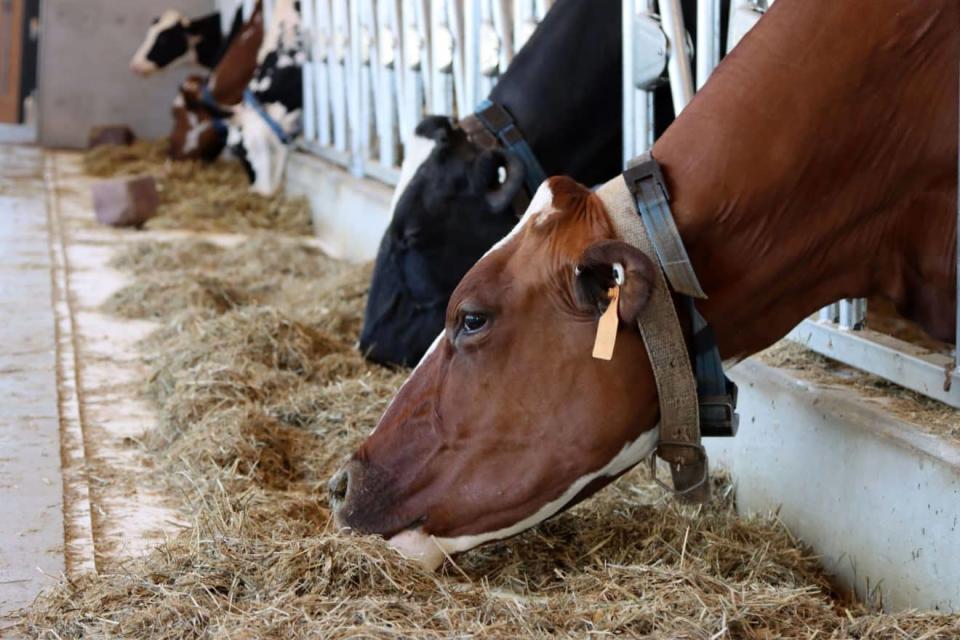Avian flu is causing concern in US. Here's what to know.
While there have been no cases of cows with avian flu, often called bird flu, in Massachusetts to date, the Massachusetts Department of Public Health is monitoring the situation closely.
A strain of bird flu, called H5N1, has caused concern in the U.S., particularly when the disease was found in dairy cow herds in several states in March. It was the first time in outbreak has ever been seen in cattle.
"No cows have been identified with H5N1 in Massachusetts at this time. People with sick dairy cattle should contact their veterinarian and call MDAR (Massachusetts Department of Agricultural resources)," Department of Public Health spokesperson Kathleen Conti said in an email.
As bird flu can be dangerous to humans, the discovery has raised questions.
Bird flu in milk: Can bird flu affect cow's milk?
Conti says yes.
"Given the new evidence that infection in dairy cows can occur, DPH wants people to know that the H5N1 virus is present in the milk of infected cows," she stated. "Raw milk (milk that is not pasteurized) can contain bacteria and viruses that are dangerous to human health."
At the same time, she noted that "even healthy animals can introduce bacteria and viruses that are dangerous to human health into the milk they produce," adding that pasteurization has been shown to inactivate bacteria and viruses — such as the flu — in milk.

What exactly is bird flu?
There are two kinds of bird flu — low pathogenic avian influenza and highly pathogenic avian influenza, the latter being the more dangerous strain. The current H5N1 strain is a dangerous one, according to the Centers for Disease Control and Prevention.
But cases of H5N1 in humans have been rare.
"While avian flu strains can sometimes infect people, only a small number of H5N1 cases have been reported in humans since 2022 (one in the United States); there have been none in Massachusetts," Conti said.
What are the symptoms of bird flu?
The Centers for Disease Control and Prevention states that bird flu viruses "have caused mild to severe illness in infected humans," and is most often contracted by contact with sick birds. Symptoms typically begin within two to eight days and often appear as the common flu. They include:
Cough
Fever
Sore throat
Muscle aches
Headaches
Shortness of breath
The disease can carry a high mortality in humans, according to the Centers for Disease Control and Prevention. Some antiviral drugs, if taken within two days of symptoms, may help.
"Oseltamivir (Tamiflu) is expected to be effective at treating the current avian influenza strain and there are no current supply constraints," according to Conti.
Conti said that if someone in Massachusetts has direct contact with infected animals, the Department of Public Health follows Centers for Disease Control and Prevention guidance and "advises them on symptom-monitoring for 10 days following their exposure, and arranges testing for individuals if they develop symptoms."
What's going on in general with bird flu?
H5N1 bird flu is widespread in wild birds worldwide, according to the Centers for Disease Control and Prevention. It is causing outbreaks in poultry and dairy cows in the U.S. There has been one recent human case in a U.S. dairy worker.
The current public health risk is low, according to the Centers for Disease Control and Prevention, that noted it is "watching the situation carefully and working with states to monitor people with animal exposures."
Will the problem be monitored going forward?
A statement from the Department of Public Health states, "CDC and DPH consider the public health risk from this virus to be low, but are maintaining situational awareness and preparing in the event that changes."
This article originally appeared on wickedlocal.com: Bird flu 2024 Ma: No cases detected in MA yet, but here's what to know

